Schools have always been defined by the people who are there. The culture is our product. The environment in which students thrive is not defined by buildings or equipment, it is defined by the people and the relationships between them. For students to learn about themselves and the world around them they need to feel safe, held accountable, high expectations, and confident that no matter what, the adults around them see them as good people even if they make mistakes from time to time.
I distinctly remember visiting Bentley a few times after leaving for Eastside Prep. After two years, I was excitedly welcomed by the whole community and stopped in the courtyard for conversations with former students and faculty. It was a wonderful visit; I felt missed, and at the same time, felt that I had contributed something significant and lasting to my previous school. After four years away, I visited again. No students knew who I was, and only about a third of the faculty had been there long enough for us to have been colleagues. In four short years, I went from being a fixture in the community to being a guest. My final visit a few years later was just a nice conversation with the Bentley Tech Director (who taught me networking when I was a physics teacher there). This year, I searched the Upper School employees to see if I could ask someone to take a picture of my old classroom and found that there was not a single employee from my time still working there. They even rejected my request for a picture of my old classroom! At least Dan Yezbick (former Bentley Latin teacher) is at EPS so we can remember those times.
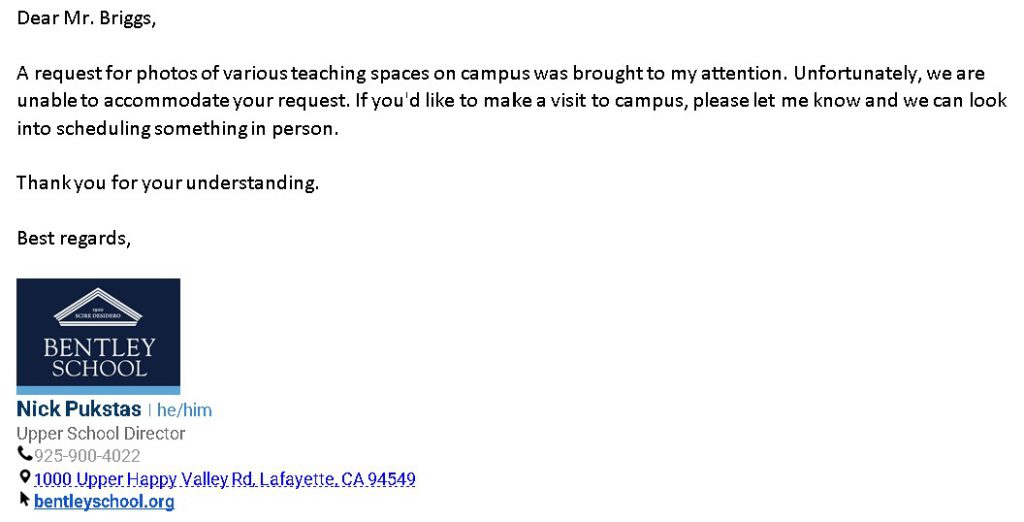
At first, not being remembered was depressing. You want all the hours and effort to have a lasting impact. It feels like it just evaporates after four years. Slowly, I realized that I was looking for my impact in the wrong place. Just as the school is only the people who are there, the impact sits with those same people. That impact continues with all the former students and former colleagues I shared time with back then. It isn’t housed in a physical location, it is housed in the shared experiences and memories of the people around the world. Six of my former students, nearly 40 years old and with no contact other than LinkedIn and facebook, took the time to write about their experiences in the aughts.
Positive moments with Mr. Briggs:
Finding inspiration from Mr. Briggs: finding humor in situations
There was not a single moment, but I do remember that you had such a passion for instilling love of science in us. I appreciate that, and it helped keep my love for science in general.
I have really fond memories of physics. I disliked Mech a lot, but you helped me master it. The dynamics of class were always so good. A great mix of fun and learning. Loved the physics pins; pretty sure I still have mine in a box at my parents house.I also distinctly remember you telling us that the job of “software engineer” [actually was “web designer”] wasn’t really a thing when you were our age (which wasn’t that long ago) and now it’s this hugely growing field. And so who knows what new jobs will exist in 5, 10, 15 years!? I’m annoyed that “influencer” is one of those new “jobs,” but I digress. It’s stuck with me because my current career didn’t really exist at the time. The book Moneyball had just come out, so there were people doing sports statistics, but it wasn’t as ubiquitous as it is now. I’ll probably say something similar in my graduation speech.
Your classes are the ones I remember most fondly from an otherwise mixed high school experience.
I remember discussing relativity in Advanced Physics and it completely blew me away!Thanks to your web design class, I was able to skip the intro level in college
Bentley and EPS former students Grad Years 2002-2011
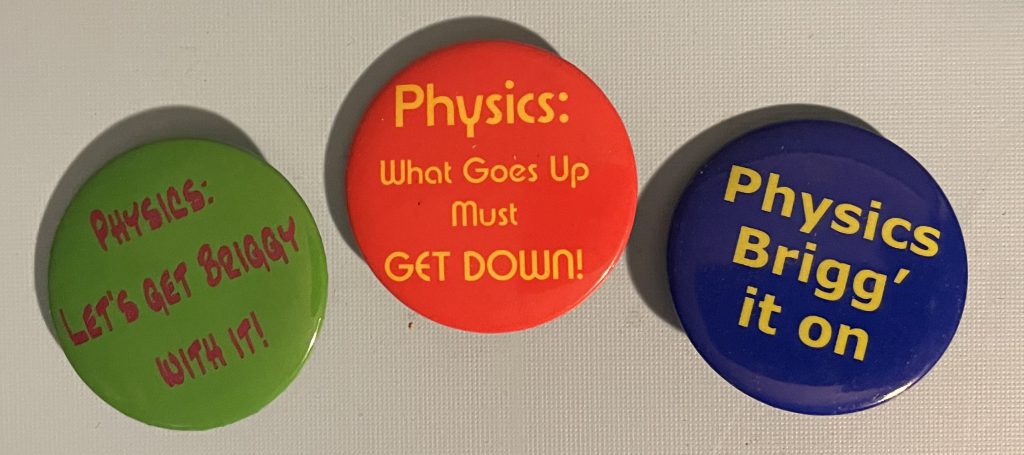
Relationships are where your enduring impact is, second is the ways in which you increase people’s capacity to think about and interpret the world, then comes all the things we do to support those two charges. The planning, the systems, the grading, the email answering is all in support of those goals. One of the toughest parts of transitioning into the administrative realm is the reduction of strong relationships with students. I do believe that the efforts I put in on the administrative side create more opportunities for those strong relationships to grow at Eastside Prep even if they are not with me. As an example, four11 was born out of that desire to reduce the amount of time teachers spend looking up information, grading, taking attendance and other bureaucratic tasks. It then grew to surface information about students from gallup strengths to the history of progress report writing and photos. All of these, help teachers get to know students rapidly. In this last year, the athletic, arts, ebc and academic team experiences students have in addition to their pronouns and name pronunciation have continued to support that effort.

No one is going to look back in 20 years and remember the impact of something like four11 or the wifi, at most they’ll remember the makerspace but I hope that four11 and the infrastructure has afforded many small, and memorable, interactions between students and faculty either through time saved or providing the right information at the right time. In that way, the quality and quantity of relationships created by Eastside Prep are increased in the aggregate and that is a valuable contribution of time and effort.
The one piece of advice I do remember was something I heard here at Bentley. When I was a senior, the physics teacher, Mr. Briggs, told us that our future careers might not exist yet. He explained how, when he was our age, and he wasn’t much older than us, the idea of being web developer wasn’t an option because there was no web. He told us that you really can’t know what you are going to do with your life, with your job, or even where you’re going to live.
2023 Bentley Guest Graduation Speaker, Dr. Kathy Evans (Bentley ’04)
Collegial Dynamics
| Develops mutually respectful and productive relationships with colleagues | 🗸+ |
| Partners consistently with colleagues on projects (i.e., integration, service learning) | 🗸+ |
| Engages in collegial activities hosted by the school | 🗸+ |
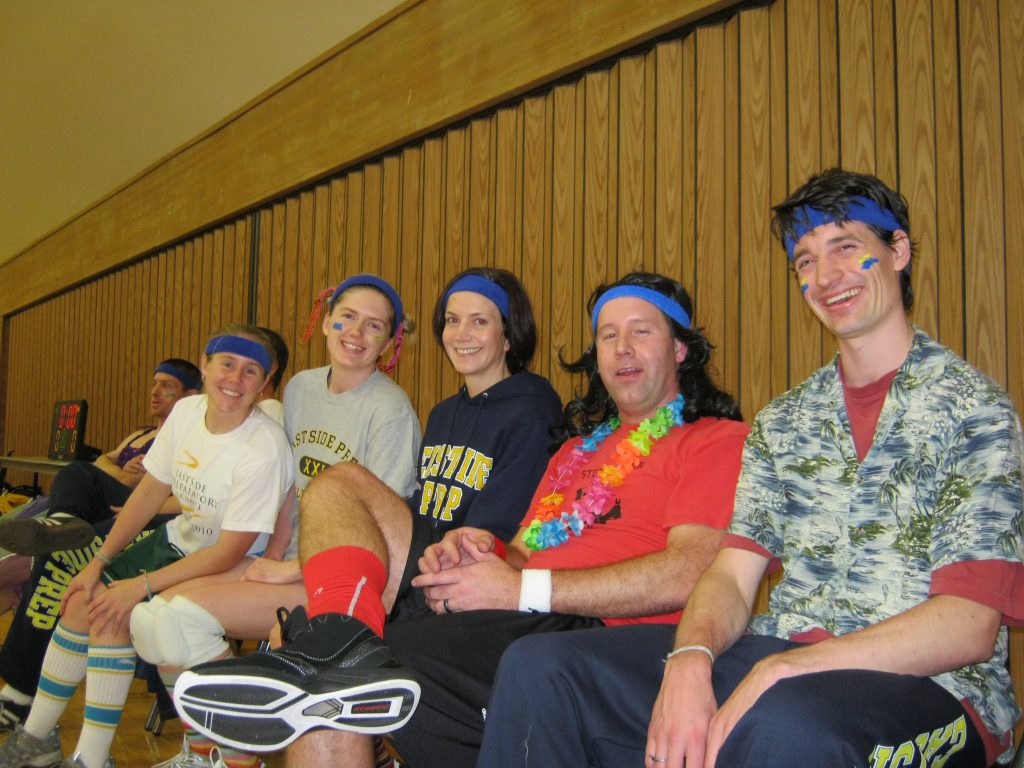
Engaging and empowering others and solving problems are the things that give me joy. Whether it is sending ideas to Terry for her to ponder, working with other departments to implement things, exploring ideas with faculty, or helping students pursue projects, I love supporting people in projects. Other people’s projects and problems are the most fun to think about, as I write these pages, I’m continually resisting the urge to dive into those projects.
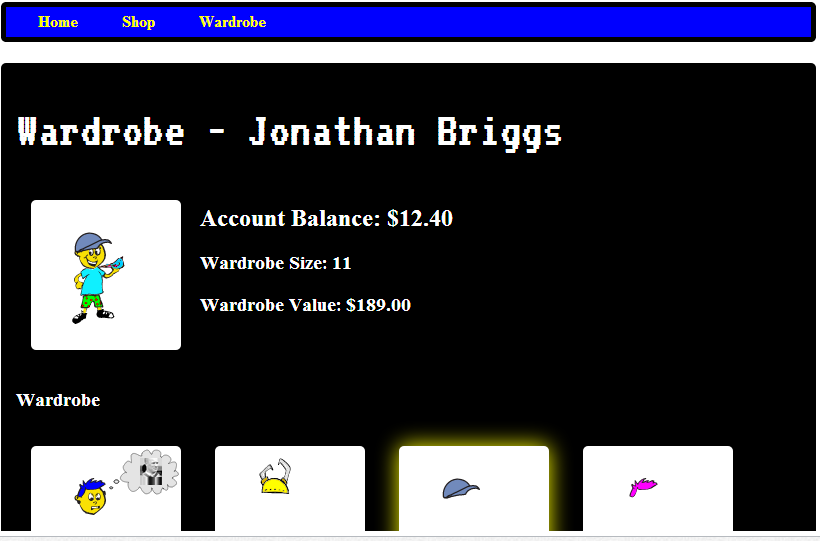
Partnering with anyone requires mutual trust and understanding. Colleagues need to know that they will be heard, understood, and supported if they come to you for help. The only way for that to be the case is to have spent time with each other. The school provides these opportunities whether it is happy hour, seeing a speaker, or sharing breakfast or lunch with each other. As a young teacher, I went to everything event I could, as a young parent, I only went to a few, as a parent of older kids I am excited to see more of these events work out logistically for me.
Breakfast and lunch are particularly great for getting to know colleagues who you don’t normally interact with. Just picking a new place to sit or a new time to eat, will get you different groups of people around the table and the dynamics make it appropriate for you to join into conversations. In general, I try to split my meal time 50% with the tech department and 50% with an assortment of other employees in the school.
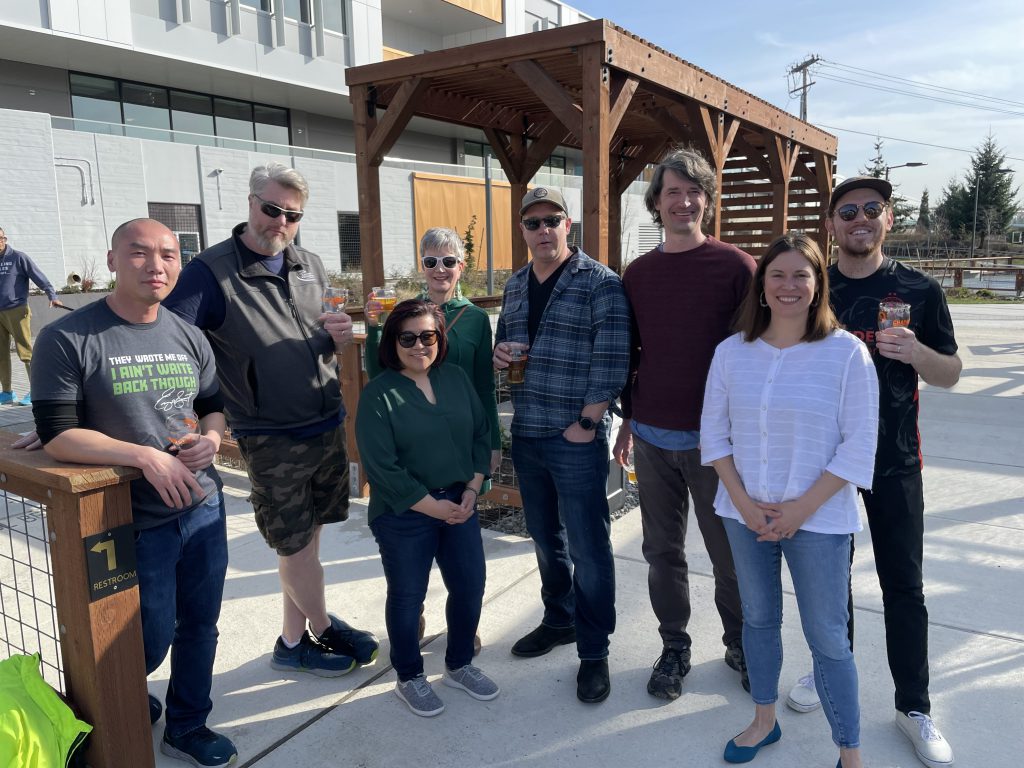
When a colleague takes a risk to pitch a feature or ask for help, they need to be met with enthusiasm and openness. In some cases, where projects were mutually supportive of other goals in my domain, a large amount of time and effort was able to be applied. One of the biggest faculty partnership projects was the Avatari application which supported the 7th-grade research project, involved upper school art students, and allowed me to pursue a programming project in the canvas ecosystem – ultimately putting Eastside Prep on the radar at instructure. Brian Whitmer, one of the co-founders invited me to give a talk on the project at instructureCon2013 in addition to my main presentation at that same conference.
Taken together, spending time with colleagues, supporting their projects and ensuring that you spend time with all the adults at Eastside Prep builds stronger relationships. Strong adult relationships support strong adult-student relationships and model what student-student relationships can be. Since the school is primarily the people and their relationships, this is how the school is made, the culture is improved, and how we all engage and empower each other.
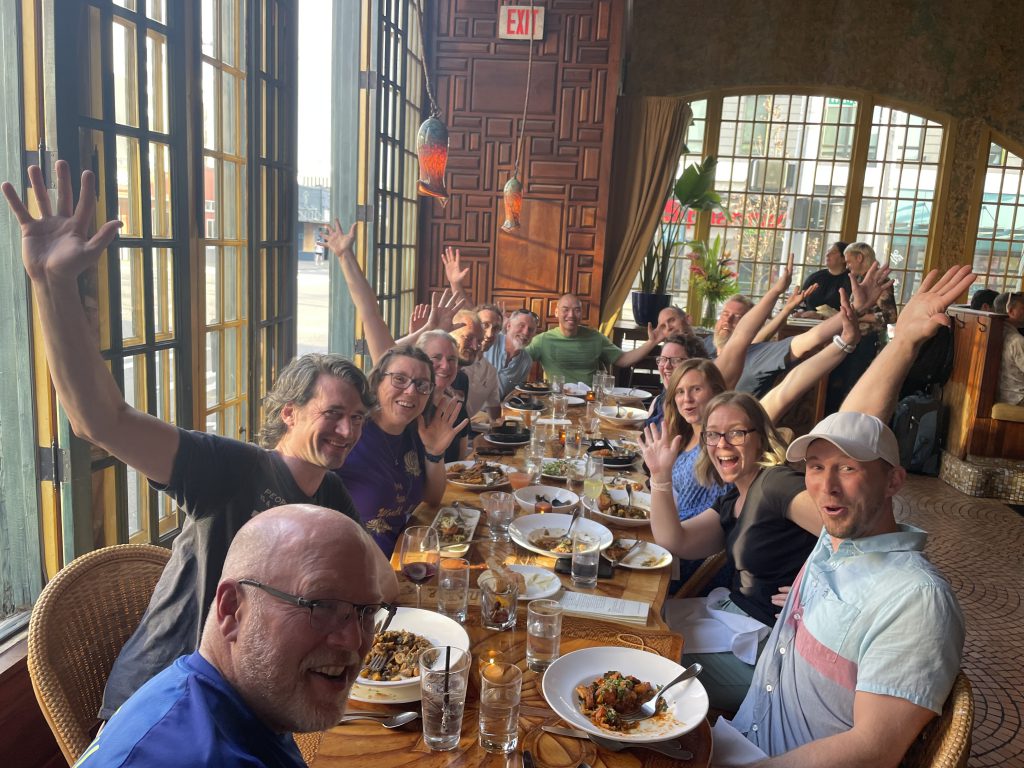
[ask for quotes to this from selected faculty?]
Community Membership & Support
| Acts as a strong and positive ambassador for EPS | 🗸+ |
| Attends school events and student performances (i.e., arts, athletics, social) | 🗸+ |
| Participates visibly in the daily life of the school | 🗸 |
| Recognizes and supports diversity in all its forms | 🗸 |
Acting as a strong and positive ambassador for EPS is part of my job and something that comes easily to me. I often joke with Cheryl Miller, that my experience comes from a summer job in marketing. Open houses, tours, companies, and other schools touring our spaces all leave feeling welcomed to an impressive environment of learning.
Early in my career, when I had no family obligations and the school was much smaller, I was able to attend a large percentage of student performances; athletic, theatre, and otherwise. After having children, and especially when they were very young, I was not able to attend as much and carried some guilt about that. Now that my children are older, and especially since two of them are currently at this school, I can see many more of these after-school events because they also want to see them. That has been a very nice side-effect of them going to EPS. I believe we have created one of the best school environments and I want them to get to benefit from all of our collective work.
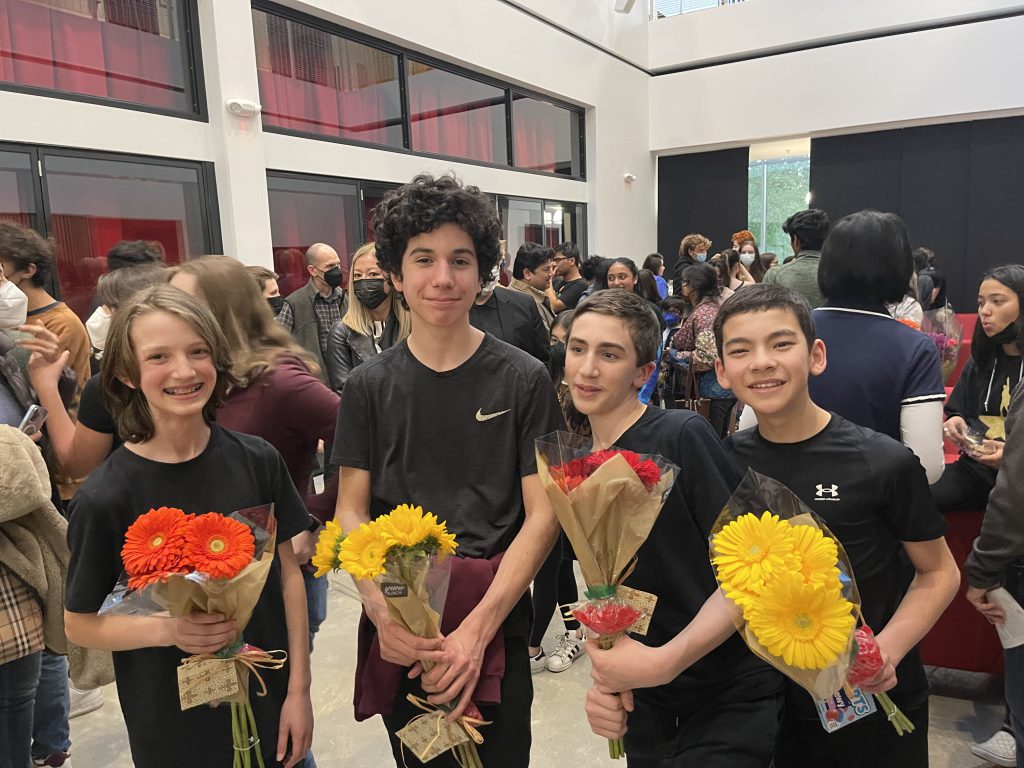
When logistics were not in my favor, I prioritized my student performance attendance towards robotics matches (which were sparsely attended and I am in charge of the technology program) and large community events such as plays and arts showcases. In the athletics realm, I would watch what was convenient, parts of basketball and volleyball after we had a gym and sports that happened at Magnuson Park (which was a few blocks from where I used to live). It was good to remember that what was important was students felt supported by faculty, not that every student felt supported by every faculty member. To see everything all the time is not sustainable.
One of the great challenges of being a slashie (part teacher, part other jobs) is participating in the daily life of the school. Often, my other role consumes the time when I might be informally spending time with students or colleagues. It is very easy to get busy with meetings, projects and tasks and disappear into the TMAC basement or 4th floor. Sometimes that is necessary, sometimes it is necessary to build in some breaks where you have some ad-hoc conversations.
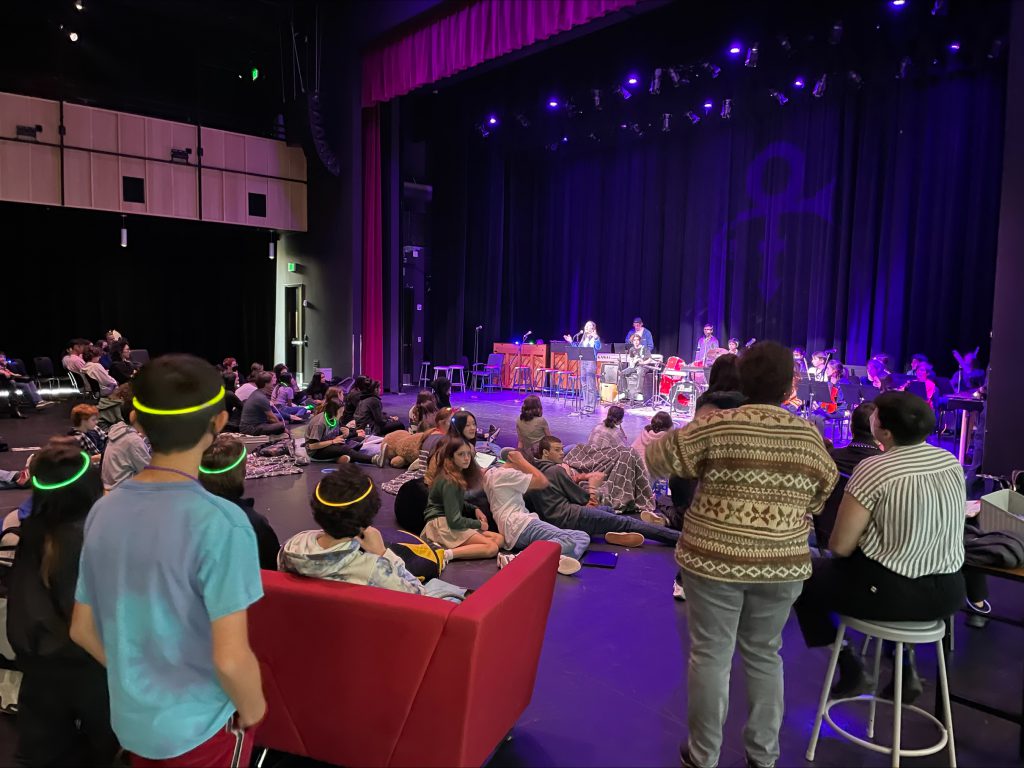
Speaking to supporting diversity in all its forms, I’m not sure where I fall on the spectrum of teachers. In terms of treating students fairly and with kindness, I am very solid. In terms of knowledge of the different experiences students may have had or are having, every time I think I have a decent understanding of the range of experiences, I learn of another one. I find getting unfamiliar names pronounced correctly is particularly challenging for me, I was thrilled to get some help from the name pronunciation project that was led by Bess and Ed this year. Looking back through the history of my time in the classroom, I am relieved to see that I was directly addressing sexism in the math, physics and computer science classes and focused on all students feeling a sense of belonging. I also cringe from time to time when I see the balance of questions and analogies that were automobile based or the use of the word “lame” to indicate something undesirable (in 2005).
EICL has captured my attention, especially in the realm of how systems can set up injustice. I find those dynamics fascinating (and often disturbing). I worry that my occasional critiques of tactics in that realm has colleagues questioning whether I am supportive of EICL work. I believe that we need to be critiquing our tactics strongly in this space. The work is so complex with layers of ramifications that no one brain can hope to do it correctly without some feedback. It is also contextual, what works at one school might not work here and vice versa. Moving culture is hard and complicated. I am still working on figuring out how to have these hard conversations effectively.